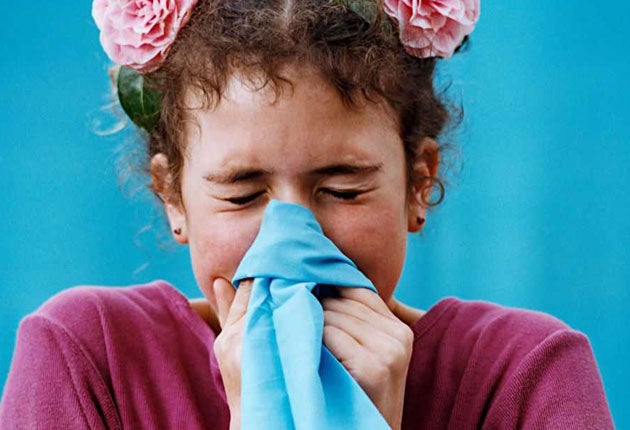Severe 'pollen burst' caused by a long, cold winter and very late spring pushes pollen levels to highest in 50 years, as NHS warns hay fever sufferers to stay indoors
Last time pollen peaked so early was in the early1960s

The UK is on alert for a severe hay fever outbreak, as a late spring pushes pollen levels to their highest in 50 years.
A long, cold winter followed by a warm spike immediately before summer means the likelihood of grass pollen meeting tree pollen is now considered to be high.
As a result the NHS is suggesting the UK’s 16 million hay fever sufferers take action to minimise their suffering, including wearing wraparound sunglasses, changing clothing and showering after being outdoors and not leaving the house while pollen counts are high.
The pollen count reportedly jumped from zero to high over the weekend, with the levels likely to continue to rise until June.
Pollen levels usually peak late in the summer, but experts believe they will spike much earlier this year, with the number of those showing symptoms rocketing over the coming weeks.
Professor Roy Kennedy, one of Britain’s leading hay fever experts, said England is likely to suffer the worst of the “pollen burst” but even Scotland will experience high pollen levels.
The director of the National Pollen and Aerobiology Research Unit said: “The cold spring meant a late start for pollen, with a pollen burst now in a condensed period – and the phenomenon of several pollens likely to peak at the same time.”
He added: “It means peak pollen levels early in the season – not later, as normal. The last year to see similar early-season pollen peaks is probably back in the 1960s – following a cold early spring such as March 1962 – or even earlier… Scotland will also see a condensed tree pollen season. Hay fever sufferers could be badly affected and need to be aware of this.”
Professor Kennedy went on to say: “The last year to see similarly early-season pollen peaks is probably in the 1960s following a cold spring such as March 1962.”
Join our commenting forum
Join thought-provoking conversations, follow other Independent readers and see their replies
Comments
Bookmark popover
Removed from bookmarks